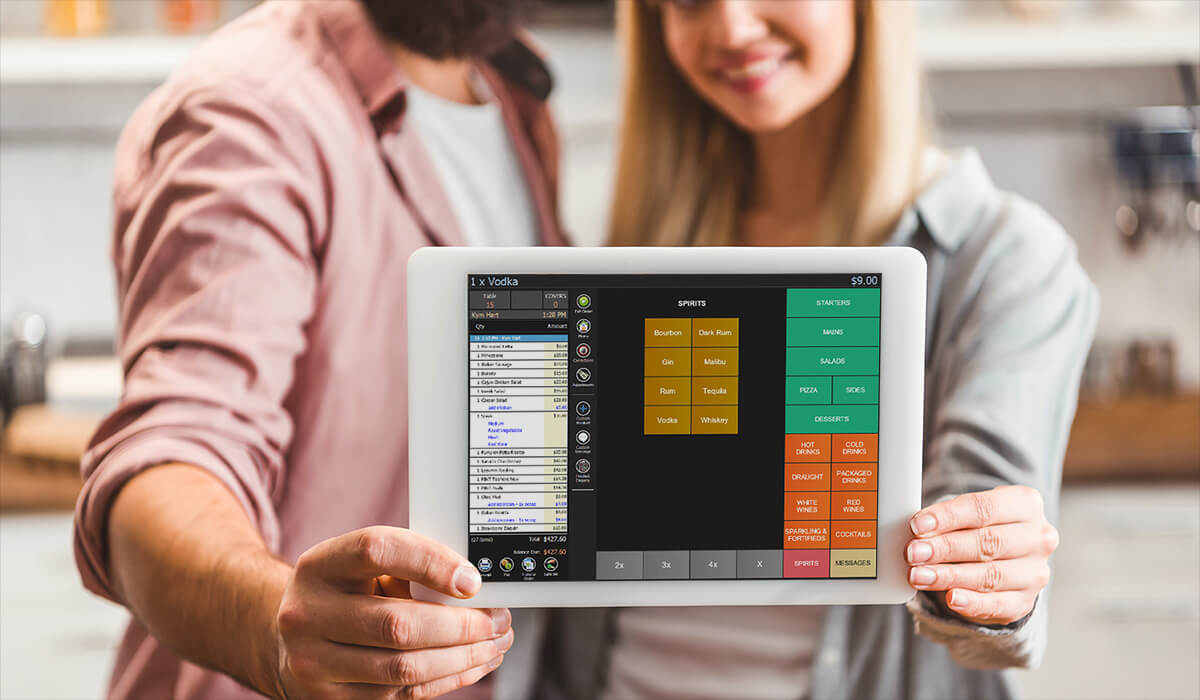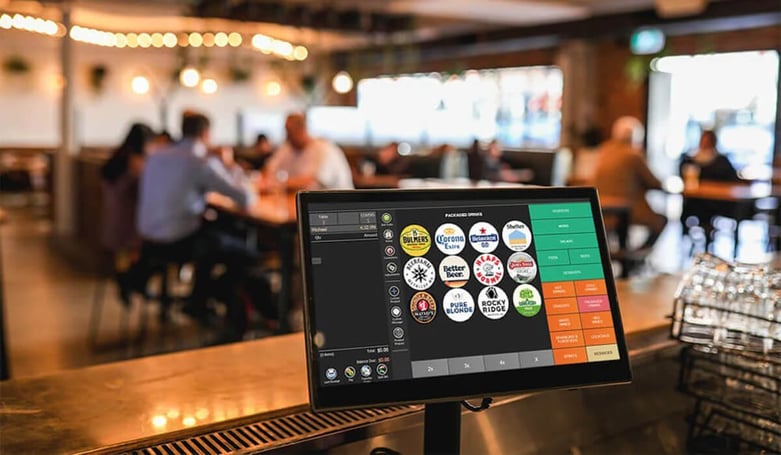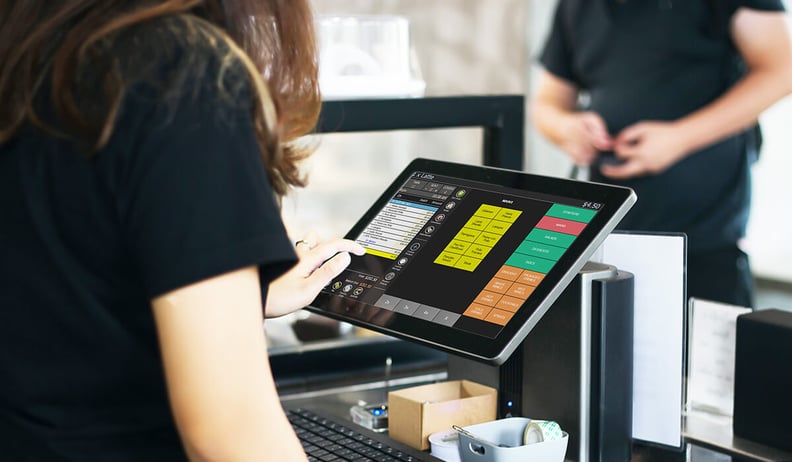

Posted on 31st January 2024
The Pros and Cons of Point of Sale Systems for Australian Businesses
Point-of-sale (POS) systems are crucial for simplifying operations, tracking inventory, and managing customer transactions in the fast-paced retail and hospitality industries. These systems are the backbone of successful enterprises, enabling seamless customer experiences and informed decision-making based on real-time data. As an Australian business owner, choosing the right POS system is essential. Understanding the pros and cons of various options maximises efficiency, profitability, and customer satisfaction, ensuring competitiveness in a dynamic market.

Types of Point of Sale Systems and Their Pros and Cons
Australia offers a range of POS systems, each with unique features and limitations. We'll explore available types to help you find the right solution for your business.
Traditional On-Premise or Server-Based POS Systems
Traditional POS, aka on-premise or server-based POS systems (as the data servers are located on the business premises) generally do not rely on the internet to function. The software and hardware are mostly located at the business and data stored on the on-premises server.
They provide advanced features but can come with drawbacks such as high upfront costs, maintenance, and support needs.
Pros
- Avoid recurring fees: This POS software is great for operators who want to buy their software outright.
- Own the software: This POS software is mostly sold as a once-off license purchase, which you can own forever.
Cons
- High upfront costs: Traditional POS systems often require a significant initial investment for software licenses, making them less accessible for small businesses.
- Maintenance and support requirements:As these systems are generally bought outright, support, maintenance and upgrades are often charged seperately. As they are not charged for regularly, the cost can be higher than, for example, regularly paid subscription fees.
- Server subject to physical conditions: As the data server is located at the business premises, if anything should happen at the premises such as a fire, the server and data could be destroyed.
Cloud-Based POS Software
Cloud-based systems are point of sale (POS) software that rely on an internet or data connection to process transactions on a terminal or tablet and store data in the cloud. They are also known as software-as-a-service (SaaS) and are automatically maintained and updated by the POS provider. SaaS POS software is charged via a monthly subscription fee, often including upgrades and support.
Pros
- Easy access from any computer browser if the software is hosted online.
- Automatic maintenance and updates: In a software-as-a-service (SaaS) system, updates and maintenance are usually included.
- Inclusive subscription: The monthly subscription fee for SaaS POS software often includes upgrades and support.
- No Internet, No service: A totally cloud-based system may not be suitable for areas with intermittent internet as transactions cannot be processed if the internet goes down.
- Transaction fees: Some POS systems charge per transaction, resulting in higher fees as the number of your business grows and transactions increase.
Cloud-Hybrid POS Systems
This type of POS software combines the functionality of cloud-based and server-based systems. The main feature of a cloud-based hybrid POS is that it will keep operating if your internet or data connection goes down. This type of POS will store transaction data locally until your internet connection is reestablished, then send the data to the cloud.
Pros
- Automatic maintenance and updates: by the POS provider in a software-as-a-service (SaaS) system.
- Often includes support and updates: In a software-as-a-service (SaaS) system, updates and maintenance are usually included in the monthly fee.
- Secure data storage: Data is stored in the cloud.
- Reporting and analytics: The cloud allows mobile reporting via an app or browser.
- Accessible from anywhere with an internet connection: As it's not server-based, you can usually access and update your POS from anywhere.
Cons
- Requires a stable Internet connection: Cloud-hybrid POS systems require a reliable Internet connection to get set up and for remote access by the support team.
- Data security concerns: Storing sensitive business data in the cloud can raise security concerns, as data breaches and cyberattacks may compromise customer and financial information.

Mobile POS Systems
Mobile POS systems use smartphones or tablets to process payments, manage inventory, and store customer information. They offer flexibility and lower upfront costs, but have limited functionality and depend on mobile device battery life and internet connection.
Pros
- Increased flexibility and mobility: Mobile POS systems offer the ability to process payments and manage inventory from any location as long as you can get a data connection on your device, making them ideal for businesses that operate on the go or at multiple locations.
- Lower upfront costs: These systems typically have lower initial costs than traditional or cloud-based POS systems, as they often use existing smartphones or tablets.
Cons
- Limited functionality compared to traditional POS systems: Mobile POS systems may offer different features than traditional or cloud-based systems, potentially limiting their suitability for certain businesses.
- Dependence on mobile device battery life and internet connection: Mobile POS systems rely on device battery life and internet connectivity, creating challenges in maintaining consistent and reliable service.
Factors to Consider When Choosing a Point of Sale System

When selecting a point of sale (POS) system for your business, there are several factors to consider to ensure you choose the one that best suits your needs. By evaluating these aspects, you can make an informed decision that will help your business thrive:
Business Type and Size
The kind of business you operate and its size play a significant role in determining the most suitable POS system for your needs. Retail businesses, restaurants, and service providers have different requirements, so choosing a system for your specific industry is essential. Additionally, consider the number of locations, sales volume, and the number of employees to ensure the system can handle your business's demands.
Budget
Budget is a critical factor when selecting a POS system. Traditional POS systems often have higher upfront costs but little to no on-going fees, while cloud-based and mobile POS systems generally have lower initial outlay but regular on-going fees. Evaluate the total cost of ownership, including hardware, software, maintenance, and support fees, to make an informed decision.
Features and Functionality Requirements
Determine the features and functionality you need from your POS system. Some businesses may require advanced inventory management, while others prioritise customer relationship management or employee management tools. Assess your needs and ensure the POS system you choose offers the necessary features and can scale as your business grows.
Integration with Other Business Systems
A POS system that integrates with your existing business systems will simplify operations, increase accuracy, and improve efficiency. Ensure the system you choose can work seamlessly with your accounting reservations and staff management software or other essential tools you use in your hospitality business.
Ease of Use and Support
A user-friendly POS system is crucial for efficient operations and reducing the learning curve for your staff. Look for a system with an intuitive interface and responsive customer support, as these factors can significantly impact your business success.
We've explored various POS systems in Australia - traditional, cloud-based, cloud-hybrid, and mobile POS. Each has pros and cons. Choosing the right POS system is crucial, as it greatly affects efficiency, customer satisfaction, profitability, and growth.
As a leading provider of point-of-sale systems, Triniteq is here to help businesses select and implement the ideal POS system tailored to their unique requirements. Our team will guide you through the process, ensuring a smooth transition and ongoing support.
Related articles
5 minute read | In this Article The Business Case for Gift Cards in Hospitality Seasonal ...
September 8-11, 2025 | Sydney ICC | Stand K12, Talking Tech Section We're excited to ...
Assembly The People's Pub lives up to its name as Canberra's ultimate community gathering ...





